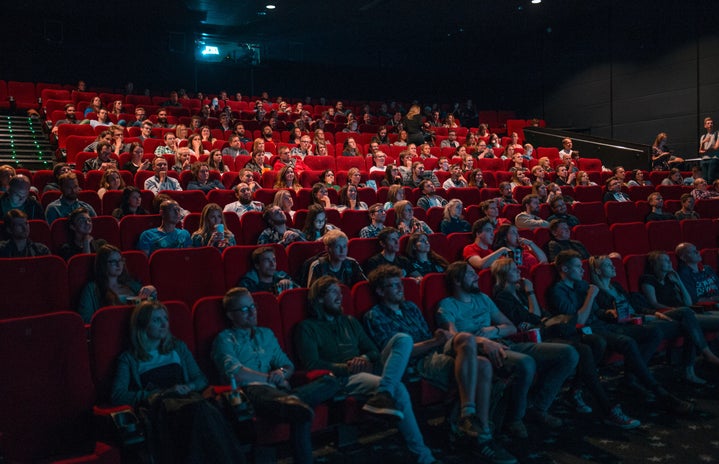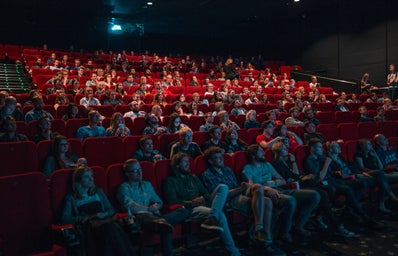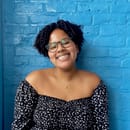After binging Netflix’s new TV show The Haunting of Bly Manor this weekend, there were a few things I noticed. First, Victoria Pedretti, if you’re reading this, I love you. Like, seriously love you. I’m free on Sunday if you want to get lunch. Second, two of the supporting characters were people of color. Third, one of the main characters is a lesbian. While the second two observations may not seem important to the average person, as a black, bisexual, non-binary individual (try saying that three times fast), I’m constantly on the lookout for representation in the media. Growing up, I was faced with intense feelings of displacement whenever I watched TV or movies and realized that very few characters, let alone main characters, looked like me. While Nickelodeon and Disney Channel had black actors in their shows, there was also a trope that came with them. Whether they were the comedic relief or the sidekick best friend, they were all one dimensional and scripted the same across the board.
As someone who wants to make a career in film, it’s important to recognize the need for not just more representation, but correct representation. According to the Hollywood Diversity Report of 2019, “2.2 out of 10 lead actors in broadcast scripted TV are people of color.” Read that again. Now read it one more time. A little over one fifth of actors in mainstream broadcasted television are people of color. This report further goes on to state that 77% of all film roles are held by white individuals, even going as far as saying “whites remained overrepresented”. Now, this is not to say that directors should simply stop casting white people or that films and TV shows with people of color or queer people don’t exist, but even with the current progress that’s been made, representation still has a bit of a way to go.
Off the top of my head, the first film with representation that comes to mind is Love, Simon. I vividly remember watching this movie at an early screening, sitting in between my best friend and my mom and uncontrollably sobbing when Simons mom said the infamous line, “You get to exhale now, Simon. You get to be more you than you have been in… in a very long time.” Despite the fact that I myself am not Simon, it felt as though a weight had been lifted off of my shoulders as well and that’s why this film resonated so well with young LGBTQ+ individuals. Like most people, after watching a movie the first place you go is Google to look up the cast, especially if you recognize one of the actors. Upon researching Nick Robinson, the actor who plays Simon, I realized it was a very commonly known fact that despite playing a gay character, he was straight. While this may not seem like a big deal, it’s also an issue so miniscule it didn’t have to occur in the first place. There are plenty of talented gay actors out there and the casting director was more than capable of finding one to play Simon’s love interest, Bram. Keiynan Lonsdale, the actor who plays Bram, is a black, openly queer actor who doesn’t really have much of a plot line (at least in the movie, the book is a different story) besides being a love interest. Essentially, it can be boiled down to black characters being viewed as side characters yet again. Two years after its counterpart Love, Simon was released, Hulu put out a television show called Love, Victor. At first viewing, I was beyond excited to see the representation increase. Not only was the main character Victor from Puerto Rico, he was also gay! Watching this character deal with internalized homophobia and the explicit homophobia from his family was, yet again, something that made me cry and something that LGBTQ+ youth is too familiar with. However, Michael Cimino, the actor who plays Victor, is also straight. This may sound like nitpicking but again, the prior argument stands: with so many talented queer actors out there, why aren’t they being casted or at the very least thought of? When a queer character is played by a queer person, it takes away an element of fiction. It shows queer audiences, “holy sh*t, it’s not just a fictional queer character being happy, it’s a queer actor who is successful, proud and happy” and it allows them to visualize a reality where that’s who they are as well.
While Love, Victor got picked up for another season, not all shows are as lucky. Netflix has a long list of cancelled shows but the first one I have a personal vendetta with is Sense 8. This show had everything, and I mean everything. The eight main characters were diverse in so many ways: a black man, a South Korean woman, a transgender woman, an Indian woman, a Hispanic man and both a white man and woman. Something so beautiful about this show was the fact that the things that made them different from one another weren’t a pivotal plot point, it was simply another aspect of who they were. Unfortunately, Netflix cancelled it, but not before thousands of people took to Twitter in an attempt to get it renewed (and it worked! Fans were given a two hour special instead of having all of the characters’ stories remain unfinished). One Day at a Time is an example of another show Netflix let go too soon. With a lesbian main character in a Cuban family, various groups felt represented yet Netflix decided to cancel it. After taking to Twitter yet again, the show was picked up by another station where it’s been running since. Clearly, people want these shows and they want to see themselves represented in the media which makes me question why they were ever taken down in the first place.
A show that really resonated with me is Atypical, a show about a boy on the autism spectrum and how it influences not only him but his family and friends. While people were pleased to see the main character, Sam, on the spectrum, I was more interested in the character of Casey, his older sister. At the beginning of the show, Casey has a boyfriend and after about a season or so, she meets a girl and they both start to develop feelings for each other. After a few awkward conversations with her mom, Casey starts to come to accept the fact that she’s bisexual. Again, after doing some research a couple episodes in, I learned the actor who plays the sister, Brigette Lundy-Paine, is a queer, non-binary actor who goes by they/them pronouns. By this point in the show, I had already developed a connection to the sarcastic yet supportive Casey but upon realizing the gender identity of Lundy-Paine, I was overwhelmed with a feeling I can’t even describe. To see a queer non-binary person working in both film and television be so successful made it felt like I could be successful as well and not be limited by something like my pronouns. While this may seem like a small victory in the eyes of cisgender people, to a non-binary person this small victory was truly everything.
It’s no secret that representation has come a long way since I was a kid, but it’s also no secret that it still has a long way to go. Stories about queer people coming out and about black people dealing with racism have been done before, and not to discredit those stories and say they aren’t important, but it’s time to mix things up a bit. Give me a horror movie with a transgender lead. Or a science fiction film with a South Asian actress as the main character. Or a fantasy movie with a black lesbian. Having the actors play a character true to themselves can make a world of a difference. There are so many various stories out there waiting to be told and if audiences continue to settle for the bare minimum representation we are being given, it’ll never change – and if you ask me, it’s about time for a change.



